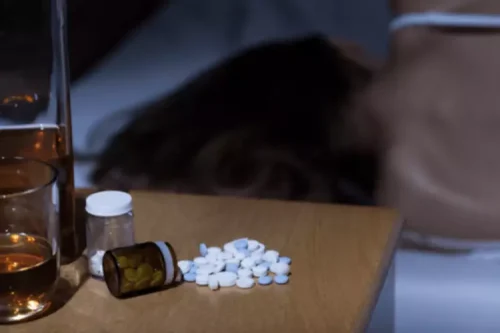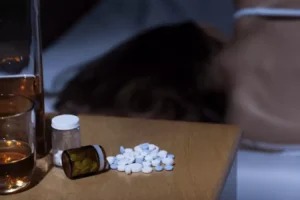
Residents live together as a family to develop the tools and strengthen their character in order to live free from substance abuse. These homes allow for independence while guided by brighton sober living a set of recovery-focused house rules, standards, and expectations. Visit the Vanderburgh House website to learn more about their sober homes.
Sober Housing

So if you’re ready to take that brave step toward sobriety, know that sober living homes are ready to welcome you with open arms and a path forward. Vanderburgh House, a supporter of Sober House Directory, builds sober home communities where residents are supported in their recovery journeys. Vanderburgh House sees a world where every person in recovery has access to a supportive, healthy, and safe home environment built on respect, focused on recovery, and lead by peers.

What Rules Apply in a Sober Living House?
- Though this is an essential stage, sober living is not the only approach.
- Sometimes, sober living houses also act as a stand-alone approach for substance misuse problems, meaning that someone will go straight there without first attending a residential treatment center.
- Many require you to have some level of abstinence prior to entry, from a few days to as long as 30 days.
In some areas, the availability of care may be insufficient to meet stable or rising demand. All of these make reintegration for people battling addiction a challenge. Clients receive medication management guidance as well online therapy provided according to SAMHSA guidelines. Weekly in-person visits from peers keep them accountable to goals and provide an outlet for the natural difficulties that arise with each stage of recovery. Treatment lasts up to a year, with additional counseling available as needed.
- Sober living houses can assist in educating drug users and reducing the chance of relapse.
- One critical stage, however, follows immediately after rehab when a patient re-enters civilian life.
- Anyone who is being discharged successfully from an inpatient rehab setting should consider transitioning to a sober living home.
- Sober living houses are often recommended for folks finishing up a drug rehabilitation program.Leaving the structure of a treatment program can be jarring, sometimes triggering a relapse.
Residential Sober Living in Tallahassee, FL
All sober houses have a zero-tolerance policy regarding the use of drugs or alcohol. Some recovery houses insist on random drug testing to ensure residents remain sober. Individuals who breach this are usually removed from the home immediately to protect the other residents. Halfway houses date back to the 1830s when they housed children and adults that had committed crimes or had been released from prison. These facilities still exist today and are used primarily for those who have been incarcerated or are unhoused.

- Suppose you’ve recently relapsed and found that the stress of being in environments around alcohol and drugs or a lack of structure is particularly triggering.
- These programs are established in houses occupied with people in recovery from misuse of alcohol and drugs.
It requires deliberate effort and mindfulness and allows those in recovery to replace addiction with lives of purpose and meaning. The process often involves fixing broken relationships and becoming actively involved in society. It represents a conscious effort to overcome dependency on drugs and alcohol. Successful individuals leave addiction behind and live more fulfilling, well-rounded lives. Their journey often includes repairing damaged relationships and becoming contributing members of their communities. As a way to help the tribal communities impacted by the fraudulent sober living home practices, the attorney general’s office launched a $6 million grant program for tribal nations and non-profits.

Common Sober Living House Rules and Regulations

A sober living home is one form of a safe living arrangement that lends itself to the recovery of all residents. Sober living homes are different than other residential programs, such as residential treatment centers, in that they are more loosely structured to facilitate employment and other outside obligations. Achieve sober living by setting achievable short-term goals grounded in a structure of healthy routines. Allow time for activities that promote mindfulness, like journaling and meditation. Overcoming addiction to alcohol and drugs is a difficult and personal journey that requires perseverance and professional support.
- In Columbus, Georgia, sober living facilities offer a traditional treatment model, while Aware Recovery Care presents an alternative approach called In-Home Addiction Treatment.
- Sober living has proven to be a helpful tool for recovery, but it’s not the only effective path for overcoming addiction.
- There is a continuum of care in substance abuse treatment that includes sober living.
- This is all to safeguard the recovery process for everyone else in the home.
- Most of the actual treatment doesn’t happen on site, but certain life skills and support groups may be provided at the house.
- Sober living houses are usually peer-run facilities encouraging continued substance use disorder recovery.
This addiction recovery approach helps people be clear about their goals and implement meaningful resilience strategies. It has the lowest crime rate of all Florida cities and ranks as the 5th safest place to live in the entire country. But easy access to the bars and drug markets in nearby Fort Pierce makes staying sober a challenge, especially with the area’s “spring break” mentality. According to the Florida Department of Health, adults in St. Lucie County, where Port drug addiction treatment St. Lucie is located, engaged in heavy drinking less (14.5%) than the state average (18%).